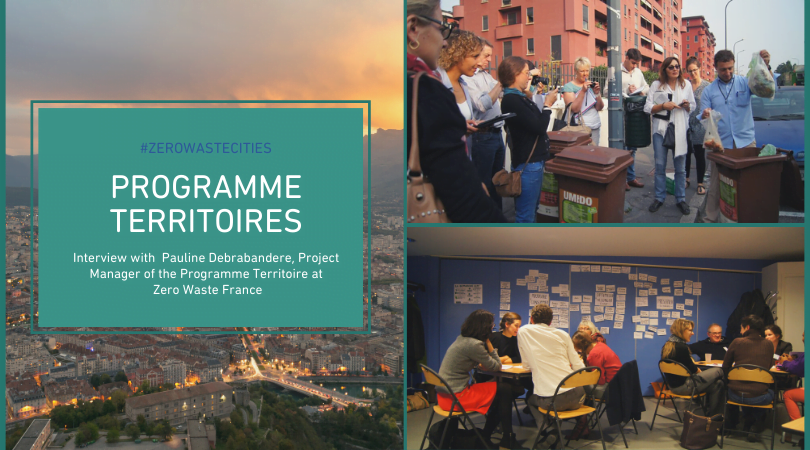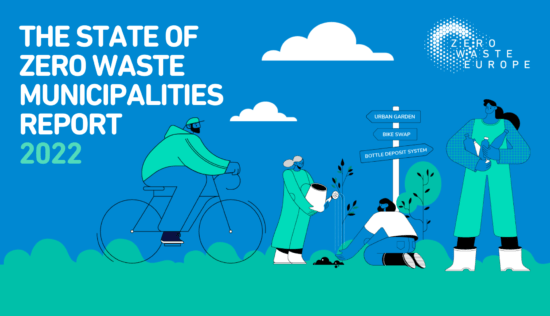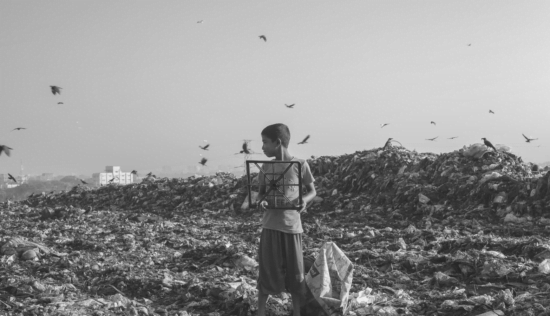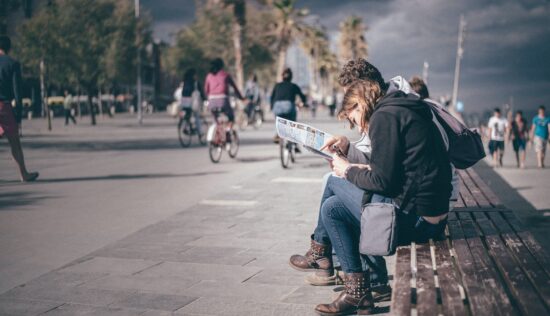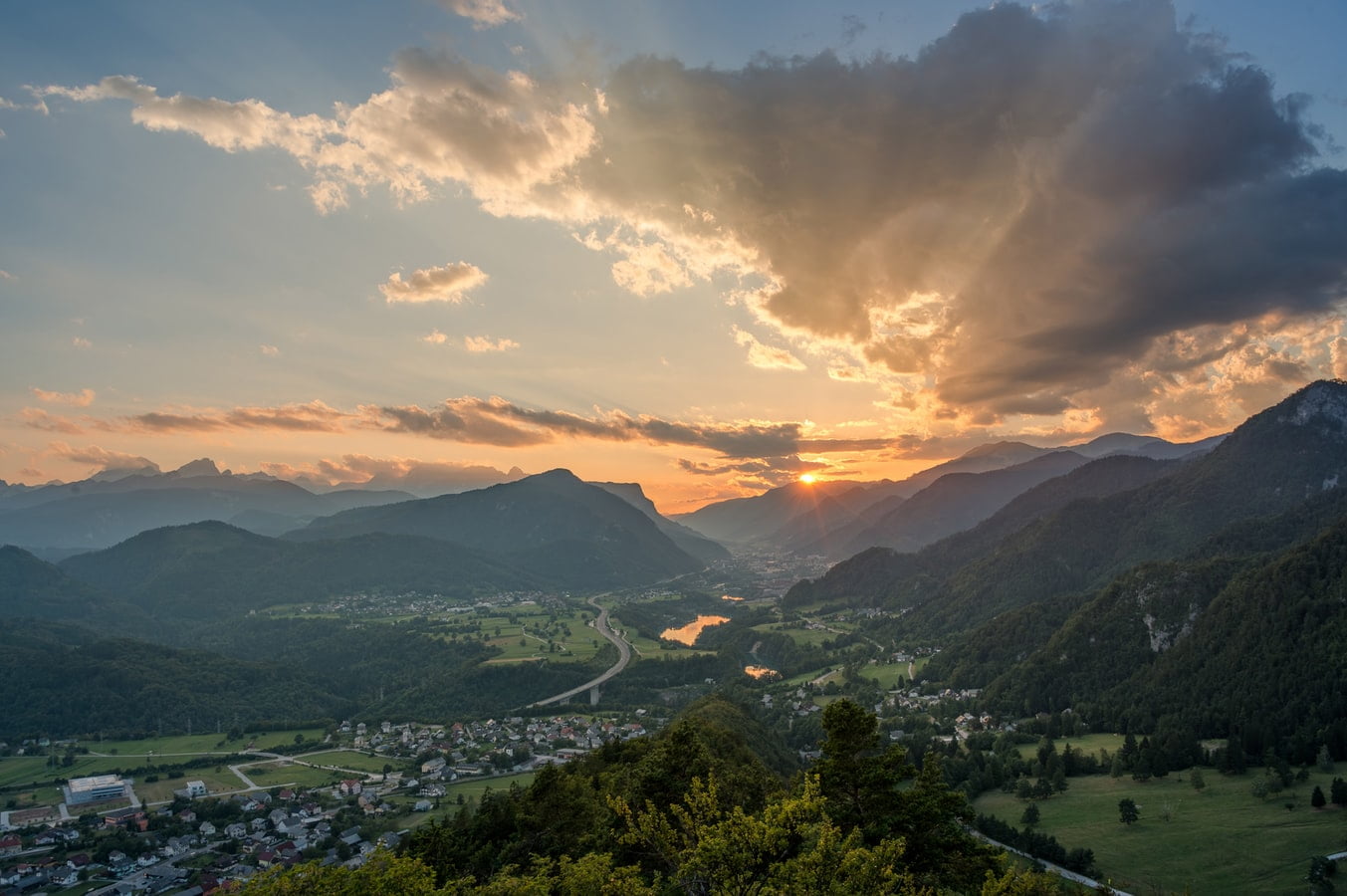Zero Waste France recently relaunched its “Programme Territoires” that aims to support local communities and actors to develop stronger waste prevention and management strategies across France.
This week, we had the pleasure to interview Pauline Debrabandere, Project Manager of the Programme Territoire, to learn more about this inspiring project:
- Hi Pauline, can you briefly introduce yourself: how long have you been working on these issues and what got you into (zero) waste?
Hello, my name is Pauline Debrabandere, and I have been working for Zero Waste France for three years. Until last summer, I was in charge of different projects (organising the french Zero Waste Festival in 2018, writing guides and studies…). But, since July, I have been managing the Programme Territoires, coming back to my first job: urban planning.
I first got into zero waste when I realised I wanted to have a more impactful and meaningful professional and personal life. The zero waste approach provides solutions to act for individuals, and to be at the same time, a political and societal project, wishing to transform our production and consumption patterns, and the entire management of our resources. This “double aspect” meant (and still means !) a lot to me.
- Tell us more about the programme, what is it exactly and what are its main goals?
The programme Territoires led by Zero Waste France seeks to provide resources to help municipalities to reduce waste, and particularly, residual waste. It consists of:
- A series of events during the year such as: training, study tours, exchange mornings… These events aim at bringing technical answers and solutions for municipalities to start taking action, and to facilitate the connections and exchanges between them.
- Case studies and articles, to go further on some topics: such as the impacts of a“Pay-As-You-Throw” system or the possible solutions for effective biowaste separate collection.
- Communication tools to share these solutions and ideas with a wider audience.
- We also provide personalised support for municipalities who need help to develop or implement a zero waste strategy.
The main goal of the programme is to bring answers on technical solutions to cities and municipalities, as well as experiences from pioneering municipalities that are already implementing strong zero waste policies, showing that reducing waste is possible and financially feasible.
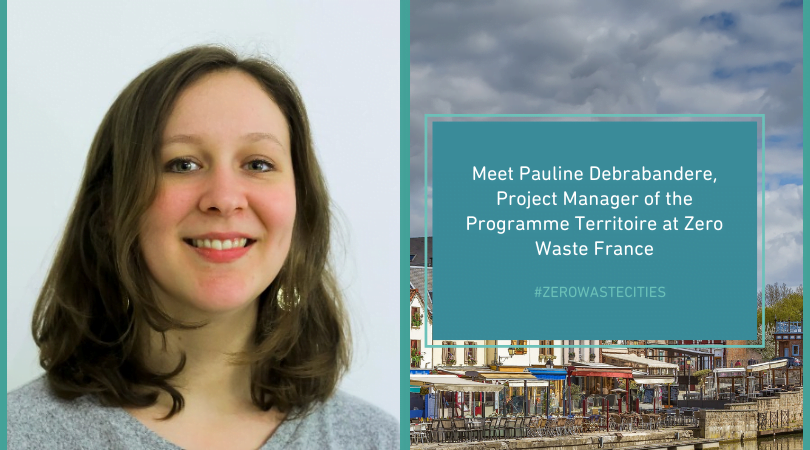
- Who is the main target audience of the programme and who has been involved in its activities?
The programme targets local authorities, representatives and officers working on waste reduction. Citizens involved in zero waste local groups can also attend the programme, in order to raise awareness in their municipalities. We also involve existing zero waste municipalities and experts, like Zero Waste Europe or french local network on composting, to share their insights.
- Why did you and Zero Waste France decide to re-launch the programme last September? What has changed from previous editions?
In 2020, local elections took place in France. It was a big moment, of course, to raise awareness among local candidates, and that’s why we published a book “Zero Waste Territories” and organised a lecture tour all over the country. After the elections, we wanted to continue these actions, so we decided it was the right time to train the local elected policymakers and their teams. That’s why we decided to re-launch the programme and put more energy and resources into it.
The previous edition of the programme, launched in 2015, aimed to support a few municipalities to go further and become best practice examples on waste reduction. The idea was, above all, to offer personalised support to them. Today, we are still doing that, but we also want to sensibilize a large number of municipalities on the urgent need to act locally. That’s why we increased the open sessions and events on this new version of the programme.
- What do you identify as the main challenges for local actors in France who want to positively change the way they deal with waste? And how do you think this project could help them overcome these challenges?
One of the main challenges today for local actors and municipalities is to achieve the objectives adopted by the EU directives on separate biowaste collection (by December 2023). In 2021, we are still far from that objective! That is why our Programme Territoires proposes training and feedback from municipalities who have been separately collecting biowaste for several years, showing how it can be done and which mistakes can be avoided.
Another challenge to reduce residual waste is to promote “Pay-As-You-Throw” systems, which can be a really controversial subject for the municipalities, even though the national law has fixed an objective of deployment. We want to make our voice heard, because a lot of local officials still stand against this kind of system, without listening to positive feedback or analysing the factors of success or failure of some examples.
- What is the waste context in France that you are working within at the local, regional and national levels? How can successful waste prevention and management policies at the local level positively impact national policy?
In France, local municipalities are the authorities in charge of most of the waste management system, hence we need pioneering municipalities to set good examples and show that waste reduction is technically and financially possible. We observe a “domino effect” on the other municipalities, so that is really important to always go further with our actions at the local level. The results achieved by these zero waste municipalities can also influence national waste prevention policies and the objectives fixed by the law.
- What are the first results of the programme, which started in September 2020, and what do you expect in the future months?
The first event of the programme (open session about separate collection of biowaste) hosted more than 130 attendees, a big success for us ! We also managed to organise a training for municipalities, and we are going to multiply training sessions in the next months. We want to develop a new series of open events in spring, but we first need to find a source of funding. 🙂

- What are the benefits of being part of a wider network of European cities working towards a better and more sustainable relationship with our resources?
Being part of this network allows us to have access and contacts with other examples of zero waste strategies adopted by cities and communities. Contexts are of course different, but we always need inspiring case studies to raise awareness in the municipalities across the country!
- Are there lessons to be learnt from your work that can be replicated elsewhere across Europe, helping others working at the local level on zero waste?
With municipalities, the main arguments are the experiences from other municipalities or communities in the same situation or with similar problems. Relying on pioneering and inspiring approaches is really important to push them to take action. What we offer in our Programme Territoires is essentially that and the analysis of the reasons of success (or sometimes failure) of such examples. That’s why we have built our programme on testimonials, exchanges, and, hopefully soon, study tours.
All information about the “Programme Territoires” is available in French here. You can find more about Zero Waste France and their work here.
